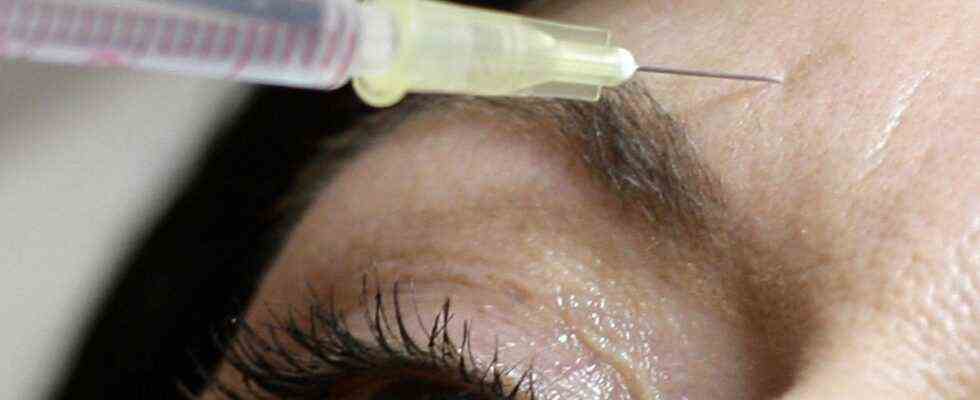The virus has buried itself in people’s bodies and souls with numerous traces. Scars will remain, be it from the long-term effects of the disease, be it from fear, insecurity and isolation as well as the poor social exchange during the pandemic. The health authorities of various countries have recently warned of completely different and fairly specific scars. The advertising council in Great Britain has just decided to reduce the incentive for cosmetic surgery in the future. Minors in particular should be protected.
From May 2022 on, advertising in youth media promoting tightening of the eyelids or the abdominal wall and enlargement or reduction of the breast will be banned. Advertisements for botox injections and lip fillings should also no longer be placed in magazines and TV programs that are particularly aimed at young people. Health politician Nadine Dorries recently announced the law because the proportion of children and adolescents who wanted to look like their “Instagram face” that had been polished and edited with Photoshop is increasing. “Children do not need cosmetic interventions, unless for medical reasons,” wrote the politician in advance of the initiative. “After all, their development is neither physically nor mentally complete.”
In Germany, an advertising ban was initiated in March 2020 that bans – including online – advertising for plastic-surgical interventions that are “primarily or exclusively aimed at children and adolescents”. But as is so often the case, implementation is difficult. In 2021, in the second year of the pandemic, minimally invasive treatments with botox or wrinkle injections have increased significantly and are top of the list of cosmetic interventions like this German Medical Journal recently reported.
“There is a clear focus on the face and especially on the eye area,” said Harald Kaisers, President of the German Society for Aesthetic Plastic Surgery (DGÄPC), when he presented the current statistics. “As a result of the pandemic, many people are dealing more intensely with their faces; when they wear masks, their eyes fall on the area around their eyes.” In video conferences, it is not your own reflection that is shown on the screen, but the perspective of the other. “That is strange for many people,” said Kaisers.
The irritation about the suddenly strange face is obviously driving people under the knife more and more. Young people are particularly susceptible because they are even less sure of themselves and also have time to deal with themselves in isolation. You succeed again and again in undergoing cosmetic surgery, although this should not be done for non-medical reasons. In addition, not all cosmetic surgeons warn against unnecessary interventions. The clinic of the notorious nose corrector Werner Mang recently promoted that the pandemic was the ideal time for interventions on the face – scars and other consequences of the operation cannot be seen under the mask.

